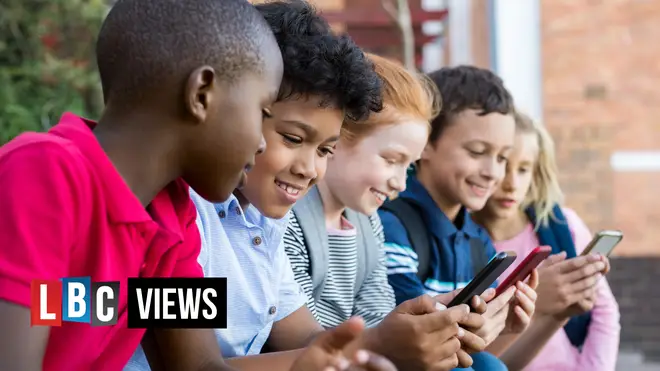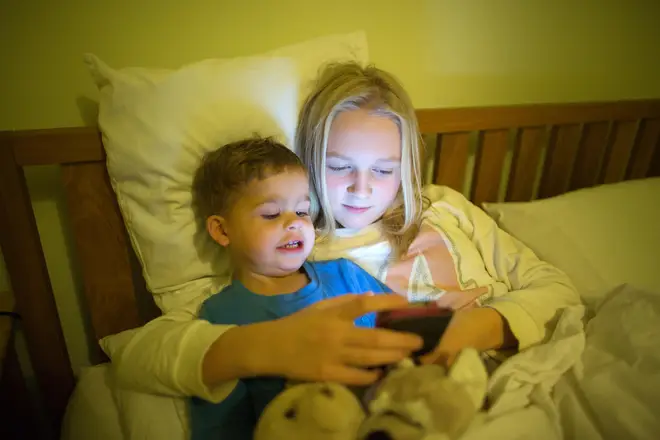
Oli Dugmore 4am - 7am
5 February 2024, 22:01 | Updated: 5 February 2024, 22:18

With the use of smartphones by young people once again in the spotlight, LBC's Will Guyatt looks at what can be done to protect young people.
Should we really be calling for a ban of smartphones for under 16s? Can you remember the last ‘ban’ that actually worked?
As a society, it’s time to have some serious discussions about the use of smartphones by young people and their impact - but a well meaning attempt to get the literal genie back into the bottle is akin to trying to ban rock and roll in the 1960s.
One death linked to anything online related is one too many - but it’s time for both parents and other adults who play important roles in the lives of young people to step up and do more to educate about the potential risks of being online, while coaching them through their digital lives.
It’s as much our responsibility as that of tech companies, so wringing your hands and waiting for an intervention is frankly a dereliction of our duties.
A tech company didn’t make you buy a smartphone for your child, and they didn’t force you to download certain apps.
A recent European study suggested that 80% of children aged 9 to 16 now used a smartphone daily, while the 2023 Nominet Digital Youth Index tells us that a staggering 56% of British kids under 16 use Whatsapp, despite the service running with a 16 and above age limit.
Yes, the tech companies SHOULD be doing more to stop young people using their services, but parents continue to wilfully hand devices over to children, the modern equivalent of handing them a blank cheque.
I’m a parent of a five-year-old girl - and I’m already nervous about the day we let her have a smartphone.
She might enjoy writing on her mum’s laptop or playing the occasional round of Mario Kart on the Nintendo, but we’re intentionally limiting her use of tech.
While I don’t judge other parents for giving their two year old a tablet of their own, or the family down the road who gave their eight year old a smartphone - it’s not a route we’ll go down.
She needs to make her own decisions on what information she shares digitally, and the reality that their are bad people in the world, both physically and online.

The first thing any adult should do is find out what their child is doing online, what apps are they using, what games are they playing, and who they are talking with.
Encourage your child to discuss anything they aren’t sure about with an adult - even if it isn’t you.
All digital devices should be used in the open, keep the games console, tablet or computer in the living room, and work out a method of restricting usage in the bedroom.
If you’re setting up a device for the first time, there’s a range of parental control apps that can limit time spent on a device, restrict certain apps and activities, and even stop searches for certain content online - popular services used by parents worldwide include Netnanny and Qustodio Parental Control.
And if your child wants to join a social network like Snapcat or Tiktok - there are options available for parental control - essentially enabling you to decide who they interact with, but to some kids, it’s the equivalent of sitting five rows behind them and their friends at a Taylor Swift concert.
There are other ways to control usage at home - most broadband routers now enable parents to restrict online access to certain times of the day - a feature many parents are increasingly using.
It’s hard for parents to know where to turn. The UK Safer Internet Centre (Homepage - UK Safer Internet Centre) - a valuable charity, offers an informative website packed with advice and information for parents and carers about the issues young people may face online.
Their website doesn’t just cover mobile phones, it includes games consoles, computers, tablets, smart TVs and even smart speakers, as well as the help and support they might need from adults as they navigate the digital world.
LBC Views provides a platform for diverse opinions on current affairs and matters of public interest. The views expressed are those of the authors and do not necessarily reflect the official LBC position. To contact us email views@lbc.co.uk